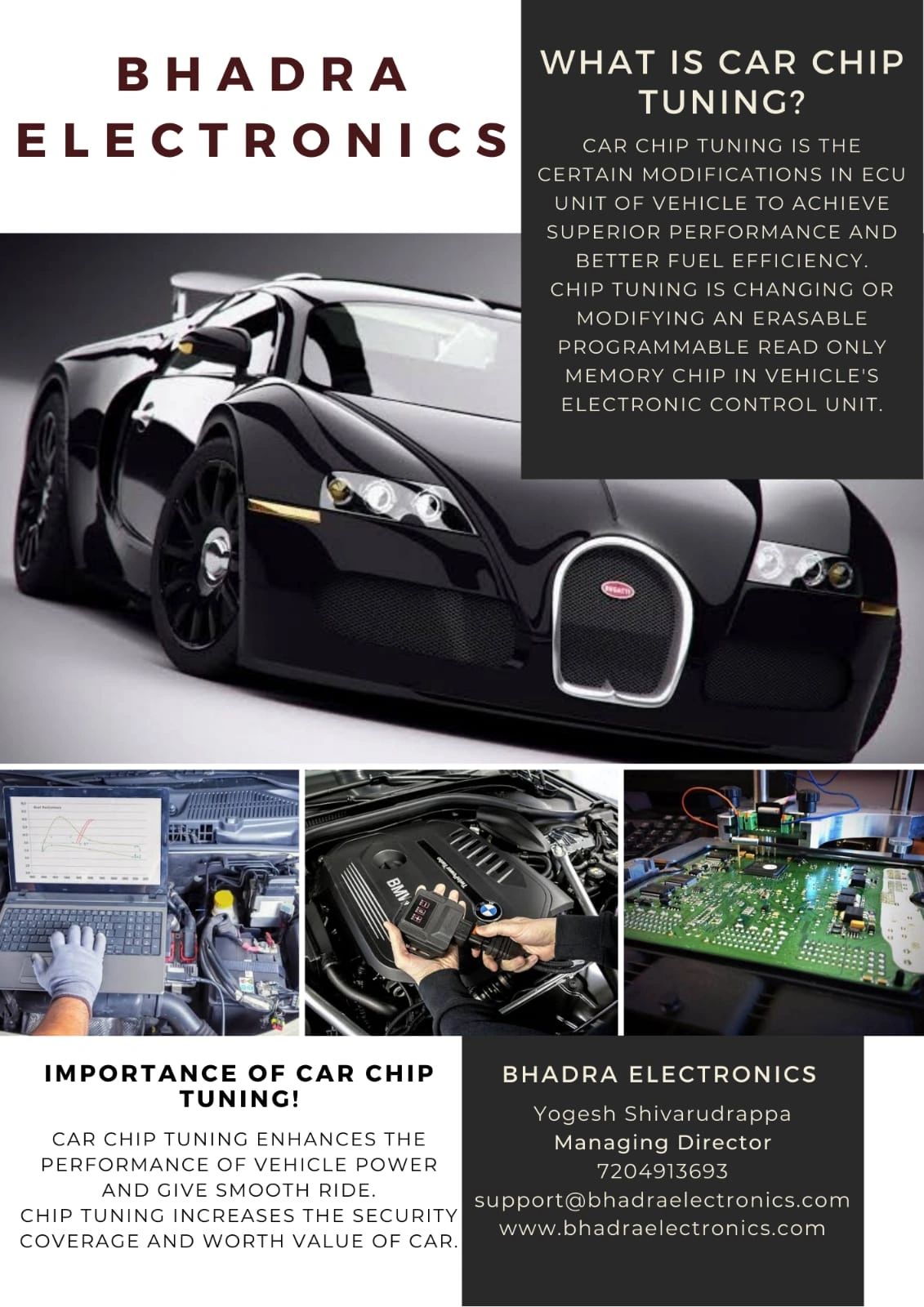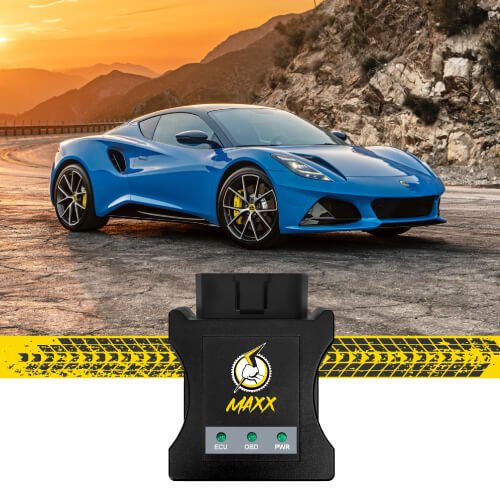The difference between Performance Car Chip vs Tuner to boost power and efficiency. Learn which upgrade works best for your car’s performance. Performance car chips adjust engine parameters for better efficiency, while tuners offer customizable settings for enhanced performance. Both improve vehicle functionality, but in different ways.
Performance car chips and tuners are popular among car enthusiasts seeking to enhance their vehicle’s performance. A performance car chip, also known as an ECU chip, modifies the engine control unit to optimize fuel efficiency and power output. Tuners, on the other hand, provide a more customizable approach, allowing users to tweak various settings like air-fuel ratio, ignition timing, and more.
While both options aim to boost performance, chips offer a plug-and-play solution, whereas tuners require more technical knowledge and adjustments. Understanding the key differences can help you make an informed decision for your vehicle’s needs.
Introduction To Performance Enhancements
Many car enthusiasts seek ways to enhance their vehicle’s performance. Two popular options are performance car chips and tuners. Both methods aim to boost your car’s power and efficiency. Understanding their purposes and roles can help in making the right choice.
Purpose Of Performance Chips
Performance chips, also known as tuning chips, modify your car’s engine control unit (ECU). These chips adjust the air-fuel ratio, ignition timing, and other engine parameters. Here are some benefits:
- Increased horsepower
- Improved fuel efficiency
- Better throttle response
Performance chips are easy to install. They often plug directly into the ECU. This makes them a popular choice for beginners.
Role Of Tuners
Car tuners provide more advanced performance enhancements. Tuners allow for custom modifications to the ECU settings. This can be done using specialized software and hardware tools. Benefits of using tuners include:
- Customizable performance settings
- Enhanced engine monitoring
- Ability to switch between multiple tuning profiles
Using a tuner requires more technical knowledge. Tuners offer greater control over your car’s performance. They are suitable for enthusiasts who want to fine-tune their vehicle.
| Feature | Performance Chips | Tuners |
|---|---|---|
| Ease of Use | Easy | Advanced |
| Customization | Limited | Extensive |
| Performance Boost | Moderate | High |
Both performance chips and tuners have their unique advantages. Choosing the right one depends on your needs and technical expertise.
How Performance Chips Work
Performance chips are small devices that modify your car’s engine control unit (ECU). They aim to enhance performance by adjusting various parameters. These include fuel injection, air intake, and timing. Understanding how they work can help you decide if they are suitable for your vehicle.
Chip Installation
Installing a performance chip is straightforward. You can do it yourself or seek professional help. Here’s a simple step-by-step guide:
- Locate the OBD-II port under the dashboard.
- Turn off the car’s engine.
- Plug the chip into the OBD-II port.
- Wait for the chip to communicate with the ECU.
- Start the engine and follow any on-screen instructions.
Always read the manufacturer’s instructions before installation. This ensures optimal performance and safety.
Typical Gains
Performance chips can bring noticeable improvements. Here are some typical gains you might experience:
- Increased Horsepower: Gains can range from 10 to 50 horsepower.
- Improved Fuel Efficiency: Some chips can increase fuel efficiency by up to 20%.
- Better Throttle Response: Enhanced throttle response makes your car feel more agile.
Keep in mind that results vary. Factors include your car’s make, model, and current condition. Always monitor your vehicle’s performance after installing a chip.
Below is a table summarizing the typical gains from performance chips:
| Improvement | Typical Gain |
|---|---|
| Horsepower | 10-50 HP |
| Fuel Efficiency | Up to 20% |
| Throttle Response | Significantly Improved |
Performance chips offer an easy way to boost your car’s capabilities. Always research and choose a reputable brand for the best results.
Understanding Tuners
Performance car tuners are crucial for car enthusiasts. They help unlock a vehicle’s potential. Tuners adjust various settings to enhance a car’s performance. These adjustments can lead to better speed, fuel efficiency, and overall driving experience.
Types Of Tuners
There are several types of tuners available. Each type offers different features and benefits. Here are the main types:
- Handheld Tuners: Small and portable. Plug into the car’s OBD-II port. Easy to use and widely popular.
- Performance Chips: Small chips installed in the car’s ECU. They alter the car’s performance parameters.
- Custom Tuners: Tailored specifically for a vehicle. Requires professional installation and tuning. Provides the best performance improvements.
Tuning Process
The tuning process involves several steps. Here’s a quick overview:
- Diagnosis: Identify the car’s current performance metrics. Use diagnostic tools to gather data.
- Installation: Install the tuner or chip. Follow the manufacturer’s instructions carefully.
- Configuration: Adjust the car’s settings using the tuner. Modify parameters like fuel mixture and ignition timing.
- Testing: Test the car’s performance after tuning. Make necessary adjustments for optimal results.
It’s important to follow these steps accurately. Proper tuning can significantly improve your car’s performance.
Comparing Chips And Tuners
Performance car chips and tuners both aim to boost your car’s power. They achieve this by altering the engine’s computer settings. But how do they differ? This section will compare performance differences and cost between chips and tuners.
Performance Differences
Performance car chips usually replace your car’s stock chip. They offer a pre-set configuration that enhances performance. Installation is typically simple. Users often see immediate improvements. This is due to the preset nature of the chip.
Performance tuners, on the other hand, provide customizable tuning options. They connect to your car’s onboard diagnostics port. Tuners allow you to adjust settings based on your driving needs. This offers more flexibility compared to chips.
| Criteria | Performance Chip | Performance Tuner |
|---|---|---|
| Installation | Simple | Moderate |
| Customization | Limited | High |
| Immediate Impact | Yes | Depends on settings |
Cost Comparison
The cost of performance chips tends to be lower. They are often a one-time investment. Most chips range from $200 to $500. This makes them accessible for many car enthusiasts.
Performance tuners usually have a higher upfront cost. The price can range from $400 to $1,000. The added cost comes with more features and customization options.
| Product | Price Range |
|---|---|
| Performance Chip | $200 – $500 |
| Performance Tuner | $400 – $1,000 |
In summary, both chips and tuners offer unique benefits. Choose based on your needs and budget.
Benefits Of Performance Chips
Performance chips offer numerous benefits for car enthusiasts. These small devices can make significant improvements to your vehicle. Let’s explore some of the key advantages.
Immediate Power Boost
One of the most notable benefits is the immediate power boost. Performance chips can increase horsepower and torque almost instantly. With a performance chip, you can experience a noticeable difference in your car’s acceleration.
This boost in power can make your driving experience more exciting. Performance chips adjust your engine’s parameters for optimal performance. They fine-tune the air-fuel mixture and ignition timing. This leads to more efficient combustion and better power output.
Ease Of Use
Performance chips are incredibly easy to use. Most chips are plug-and-play devices. This means you don’t need any special tools or expertise to install them. Simply plug the chip into your car’s OBD-II port, and you’re good to go.
There’s no need for complicated tuning sessions or expensive trips to the mechanic. Performance chips also offer user-friendly interfaces. Many come with apps that allow you to monitor and adjust settings from your smartphone.
| Feature | Benefit |
|---|---|
| Plug-and-Play Installation | No special tools or expertise required |
| Immediate Power Boost | Increased horsepower and torque |
| User-Friendly Interface | Monitor and adjust settings easily |

Credit: chipyourcar.com
Advantages Of Tuners
Car tuners have many advantages over performance chips. They provide more control and customization. Tuners are ideal for enthusiasts who want to fine-tune their car’s performance.
Customization Options
Tuners offer a range of customization options. This allows car owners to adjust various settings to suit their driving style. You can tweak the engine’s performance, fuel efficiency, and even throttle response.
- Adjust engine timing
- Modify fuel maps
- Control turbo boost levels
These options make tuners versatile. They allow for a tailored driving experience. Performance chips lack this level of customization.
Long-term Benefits
Tuners provide long-term benefits. They adapt to future upgrades. If you add new parts to your car, a tuner can adjust accordingly.
| Feature | Tuners | Performance Chips |
|---|---|---|
| Adaptability | High | Low |
| Customization | Extensive | Limited |
This adaptability ensures that your car maintains optimal performance. Tuners are a long-term investment for your vehicle.
Potential Risks And Downsides
Performance car chips and tuners can boost your car’s power. But they come with potential risks and downsides. Understanding these risks helps you make better decisions. This section covers the main downsides you should consider.
Impact On Warranty
Modifying your car with chips or tuners may void the warranty. Car manufacturers offer warranties to cover defects. But they often exclude damages from modifications. Installing a chip or tuner could lead to warranty issues. You may have to pay for repairs out of pocket.
Possible Engine Stress
Boosting engine performance can cause extra stress. Chips and tuners push the engine beyond factory settings. This extra strain can lead to faster wear and tear. Over time, engine components might fail sooner than expected. Regular maintenance becomes even more important.
Here’s a table highlighting potential engine stress factors:
| Factor | Effect |
|---|---|
| Increased Power | Higher stress on engine parts |
| Higher RPM | More wear and tear |
| Extra Heat | Possible overheating issues |
Consider these risks before installing performance chips or tuners. Balance performance gains with potential long-term effects.
Choosing The Right Option
Deciding between a Performance Car Chip and a Tuner can be challenging. Each option offers unique benefits. Making an informed decision requires understanding key differences. This section will help guide your choice.
Factors To Consider
Several factors should influence your choice. Let’s break them down:
- Budget: Performance chips are often cheaper. Tuners can be more expensive.
- Ease of Installation: Chips are usually plug-and-play. Tuners may need professional installation.
- Customization: Tuners offer more customization options. Chips have preset configurations.
- Performance Gains: Tuners can provide higher performance boosts. Chips offer moderate gains.
Expert Recommendations
Experts suggest considering your vehicle’s needs. Here’s a quick overview:
| Vehicle Type | Recommended Option |
|---|---|
| Daily Driver | Performance Car Chip |
| Performance Car | Tuner |
| Track Car | Tuner |
Experts also recommend considering your technical expertise. If you prefer simplicity, opt for a chip. For more control, choose a tuner.
Real-world Performance Gains
Understanding the true impact of performance car chips and tuners is crucial. Many enthusiasts seek tangible improvements. This section explores the actual gains experienced by users.
Case Studies
Real-world case studies provide valuable insights. Here are some noteworthy examples:
| Vehicle | Type | Performance Chip Gains | Tuner Gains |
|---|---|---|---|
| Ford Mustang GT | Chip | +20 HP, +15 lb-ft torque | +30 HP, +20 lb-ft torque |
| Chevrolet Camaro SS | Tuner | +25 HP, +18 lb-ft torque | +35 HP, +25 lb-ft torque |
| Dodge Challenger R/T | Chip | +22 HP, +17 lb-ft torque | +32 HP, +22 lb-ft torque |
These case studies highlight the enhancements. Chips and tuners both offer significant boosts.
User Testimonials
Many users share their experiences online. Here are some testimonials:
- John D.: “My Mustang feels like a new car. The chip added noticeable power.”
- Sarah K.: “The tuner on my Camaro made a huge difference. Acceleration is smoother now.”
- Mike L. – “Challenger R/T performance improved significantly with the chip. More responsive throttle.”
User testimonials confirm the real-world gains. Both chips and tuners deliver on their promises.

Credit: bhadraelectronics.com

Credit: www.yourmechanic.com
Frequently Asked Questions
What Is A Car Performance Chip?
A performance chip is an aftermarket device that modifies engine parameters to boost power and efficiency.
What Does A Car Tuner Do?
A car tuner adjusts the engine’s software settings to optimize performance, often using specialized tools and software.
Which Is Better, Chip Or Tuner?
The choice depends on your needs. Chips are easier to install, while tuners offer more customization.
Do Performance Chips Increase Horsepower?
Yes, performance chips can increase horsepower by optimizing fuel and air mixture settings.
Are Car Tuners Safe To Use?
Yes, when used correctly. Always choose reputable tuners to avoid damaging your engine.
Can I Install A Performance Chip Myself?
Yes, most performance chips are designed for easy installation with basic tools and instructions.
Conclusion
Choosing between a performance car chip and a tuner depends on your needs. Both offer unique benefits. A performance chip provides quick gains with minimal effort, while a tuner offers more customization. Assess your goals and budget to make the best choice.
Enhance your driving experience with the right upgrade.


